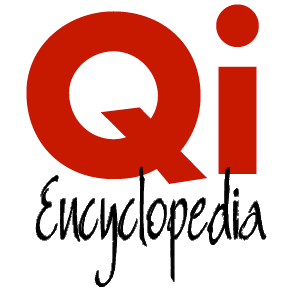
sponsor: Qi Journal
Navigation:
Portals
|
article: Qi-Matter As Energy | author: Joseph Needham | date: 2016-12-28 08:08:05
|
|
Qi—Matter As Energy

Joseph Needham in 1937; the year his collaborator, lover and future wife Lu Gwei-Djen, came to Cambridge University as a student. (photo: wikipedia) [Editor's note: This entry is based on Joseph Needham's Science and Civilisation in China, Volume 2, "We have often had occasion to observe the use of the word qi in Chinese thought, for it can be found in the writings of almost every author who was even indirectly concerned with Nature since the beginning of the ancient philosophical schools. Though in many ways analogous to the Greek pneuma— [ed. note: pneuma 
Zhu Xi (1130-1200). One of China's most influential neo-Confucian philosophers. His teachings became required reading for China's civil service exams for 600 years. Life Magazine ranked Zhu Xi as the forty-fifth most important person in the world for the past one thousand years. [top 100] [Joseph Needham often translated, and commented on the neo-Confucian scholar Zhu Xi Qi and ExistenceZhu Xi used the word "Qi" to mean "matter" — as not only something which has a "solid, hard and tangible state," but as something which "can exist in tenuous non-perceptible forms" [p.472]. Qi may be a physical thing, but it also may be thought of as being in a continual state of transformation: as in "a thing is always 'becoming' or 'de-becoming'; all the time on its way to being something else." [p.478] [3] Qi and Creation (from Zhu Xi, The Complete Works, Chapter 49.)Before the beginning of Heaven and Earth there was only the qi of yin and yang, revolving to and fro. As the speed of rotation increased there was squeezed out an impure residue which coagulated at the center and formed the earth. "The purest elements of qi became the sky, the sun and moon, and the stars, which are permanently revolving and turning round outside." [p. 373] Qi and Li – Energy and OrganizationNeo-Confucian thinkers such as Zhu Xi believed the two basic and fundamental concepts to understand all of Nature and Mankind are Qi, corresponding "approximately to 'matter' or rather 'matter and energy,' and Li, 'the ordering and organizing principle' in the cosmos." [p.558] Li is the Way that organizes all forms from above, and the roots from which all things are produced. Qi is the instrument composing all forms from below. Qi is the tool by which, and the raw material from which, all things are made. [The Complete Works of Master Zhu, chapter 49, see Ho Peng Yoke p. 5]. 
Joseph Needham was undoubtedly the greatest Western sinologist of the 20th century. Qi and the Consciousness of LifeWhen asked if consciousness is due to the activity of Qi, Zhu Xi replied it is not entirely a question of Qi (matter-energy) because the Li of consciousness existed first. By itself Li is not consciousness, but when combined with Qi, consciousness arises. It is similar to the flame of a candle: it is because it receives so much good wax that we have so much light. [see p. 488] [ed. note: Think back to when you were a young child. Today most cells of your former youthful body no longer exist, or have radically changed; as have your former thoughts. But what has remained the same? The burning candle represents the entirety of you as a living human being. The fuel of the melting wax represents the Qi (matter-energy) functions of your ever changing physical body. The constant flame symbolizes what has remained the same: the Li (the organizing principle) of your being alive.] The Concepts of Qi – Li and Modern Developments[ed. note: There are intriguing resonances between the ideas of qi and li of Neo-Confucian scholars of over eight hundred years ago and modern western theoretical science.] "The two fundamentals in the modern view of the universe, as the natural scientist and the organic philosopher sees it, are Matter-Energy [Qi] on the one hand, and Organisation, the principle of Organisation [Li], on the other." [p. 475] "Matter is no longer as simple as philosophers thought, and is interconvertible with energy. We must … speak only of Energy and Organisation…. For is not the natural world wholly composed of energy and order?" [p.479] "The Chinese world-view depended upon … the harmonious cooperation of all beings … from the fact that they were all parts in a hierarchy of wholes forming a cosmic pattern [Li], and what they obeyed were the internal dictates of their own natures [Qi]. Modern science and the philosophy of organism, with its integrative levels, have come back to this wisdom, fortified by new understanding of cosmic, biological and social evolution." [p. 583] It seems proper to close this entry by saying that Joseph Needham believed that all of us have much to gain from the study of the Qi and Li of Chinese thought.
Chinese Script for Key Terms Endnotes[1]^ Needham's personalized spelling of "Chhi" has been changed throughout this entry to the modern standard "Qi". [2]^ This and all subsequent pagination refers to Needham's Science and Civilisation in China, Volume 2, (1957). [3]^ Western thought tends to find reality in substance: as in a thing cannot be and not be at the same time. The Chinese more often find any so-called reality in relativity and transformation/relationship and change. Quoting Needham, "Where Western minds asked 'what essentially is it?'; Chinese minds asked 'how is it related in its beginnings, functions, and endings with everything else, and how ought we to react to it?' " [p.200] Sources ConsultedHo Peng Yoke. Li, Qi and Shu: An Introduction to Science and Civilization in China. Jeremy Lent. "Nature's Organizing Principles: The Li" Joseph Needham. Science and Civilisation: Volume. 2, History of Scientific Thought. |
